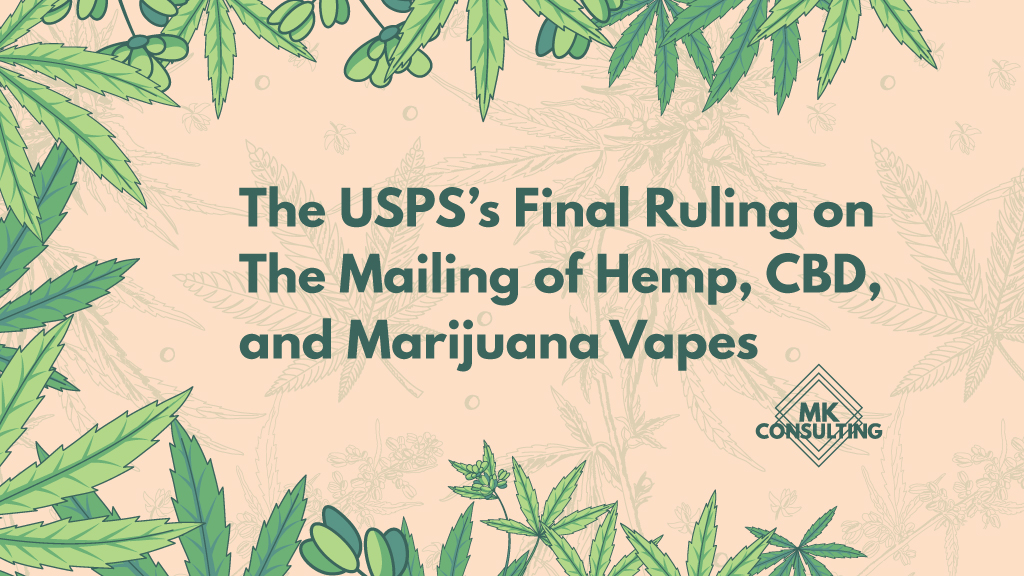After months of back and forth debate, the United States Postal Service (USPS) has issued its final regulation in response to the Prevent All Cigarette Trafficking (PACT) Act. In and of itself, the PACT Act prohibits the shipping of cigarettes. Still, subsequent modifications have expanded the definition of “cigarettes” to include hemp, CBD, and vapor devices containing cannabis derivatives for mailability purposes.
The USPS developed its final regulation on the mailability of vapes to comply with the Preventing Online Sales of E-Cigarettes to Children Act (POSECCA), which was signed into law by former President Donald Trump in 2020 to control the sale and delivery of electronic delivery systems (ENDS). Even though the final rule explicitly prohibits ENDS related to nicotine products, Congress has expanded the rule to cover all vaping goods, including cannabis, CBD, and hemp products.
According to the ruling, because marijuana and THC are categorized as Schedule I narcotics under the Controlled Substances Act, THC items were already forbidden from being transported through the USPS. And all vape products, including those that use marijuana or CBD, are banned from transport. The rule specifies that forbidden materials sent over the mail will be seized, and the senders would face criminal fines, imprisonment, and civil penalties.
However, the USPS Final Rule states that hemp and hemp derivatives are not nonmailable, but hemp-containing ENDS are. As a result, hemp and hemp derivatives containing no more than 0.3 percent THC by dry weight are exempt from the CSA’s mailability limits, and objects used with such substances (but not banned substances) may fall outside the definition of drug paraphernalia. The final rule also exempts business-to-business shipments and shipping to consumers within Alaska and Hawaii’s borders and restricts non-commercial shipping between private people from the mail prohibition.
There has already been a lot of backlash to this decision. Commenters asked the agency to give an alternate method to regulate these products or to provide specific exceptions. Additionally, there have been requests for a postponement of the effective date. Commenters also suggested that putting cannabis in the final regulation would contradict state and municipal laws that decriminalize or legalize the drug for medical or recreational use. Others said it would conflict with other legislation prohibiting the Department of Justice from using funds to block states and territories from enacting their laws allowing for the use, distribution, possession, or production of medical marijuana.
In the end, the main effect of these laws will be to effectively force vape producers and merchants to employ more expensive private courier services. This expense will most likely be passed on to consumers, raising the cost of marijuana goods in possibly prohibitive amounts. No one is sure yet how it will affect sellers’ bottom line or hurt buyers’ pockets, but it is something to watch in the coming months and years as the regulations go into effect.
Book a consultation to get started on a vibrant campaign that not only meets but exceeds your state and market requirements—not to mention converts customers for better revenue, social footprint, and company growth.







